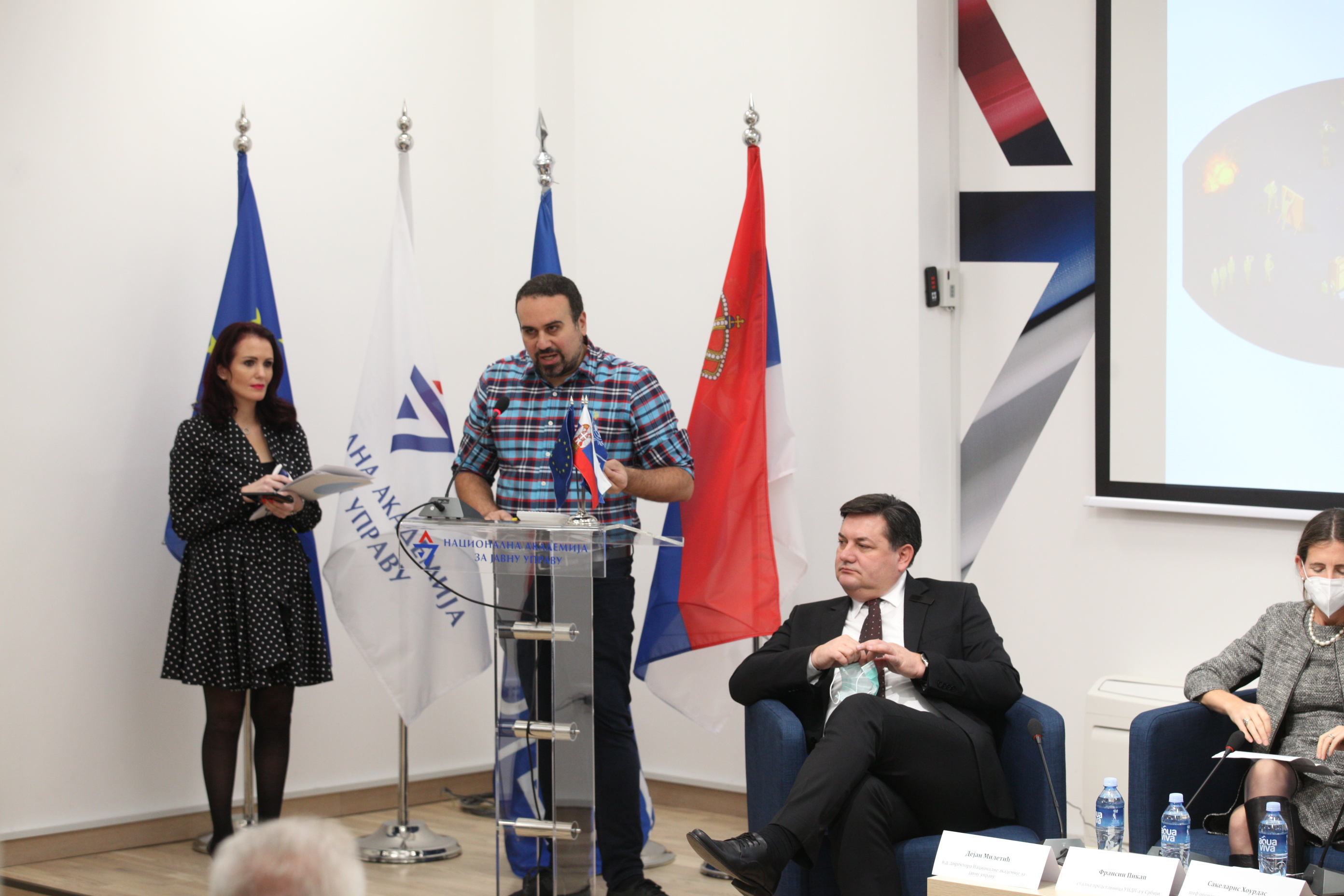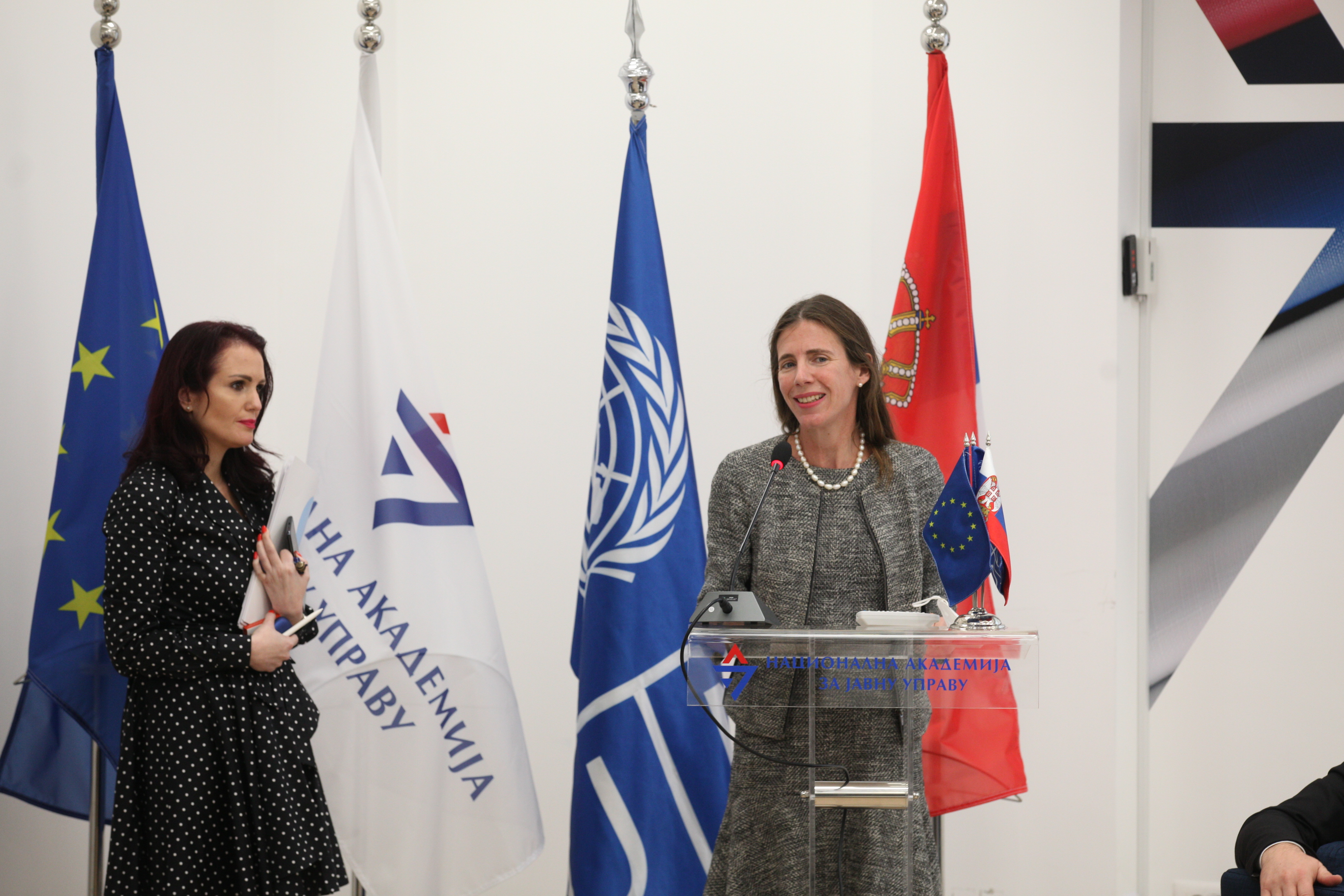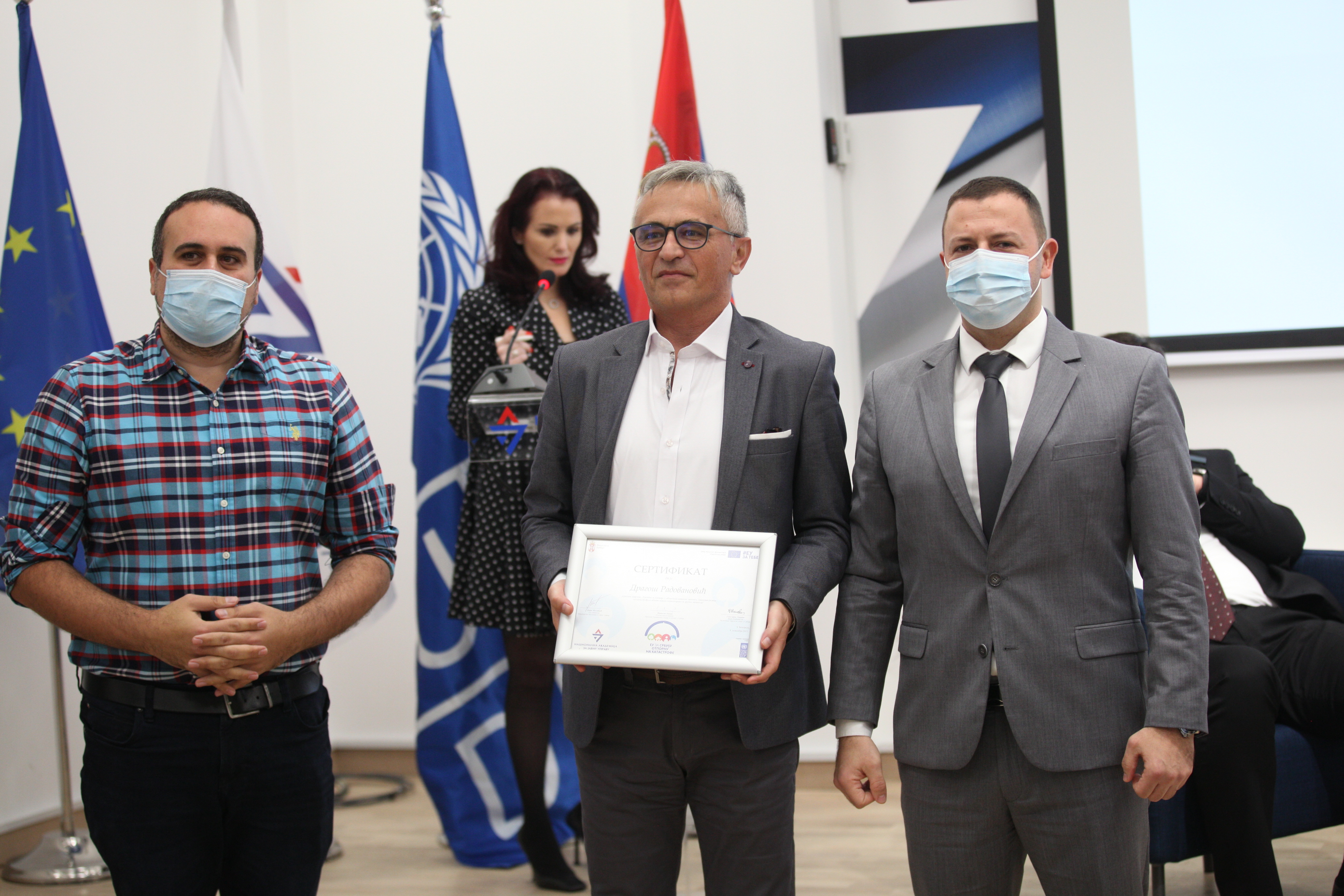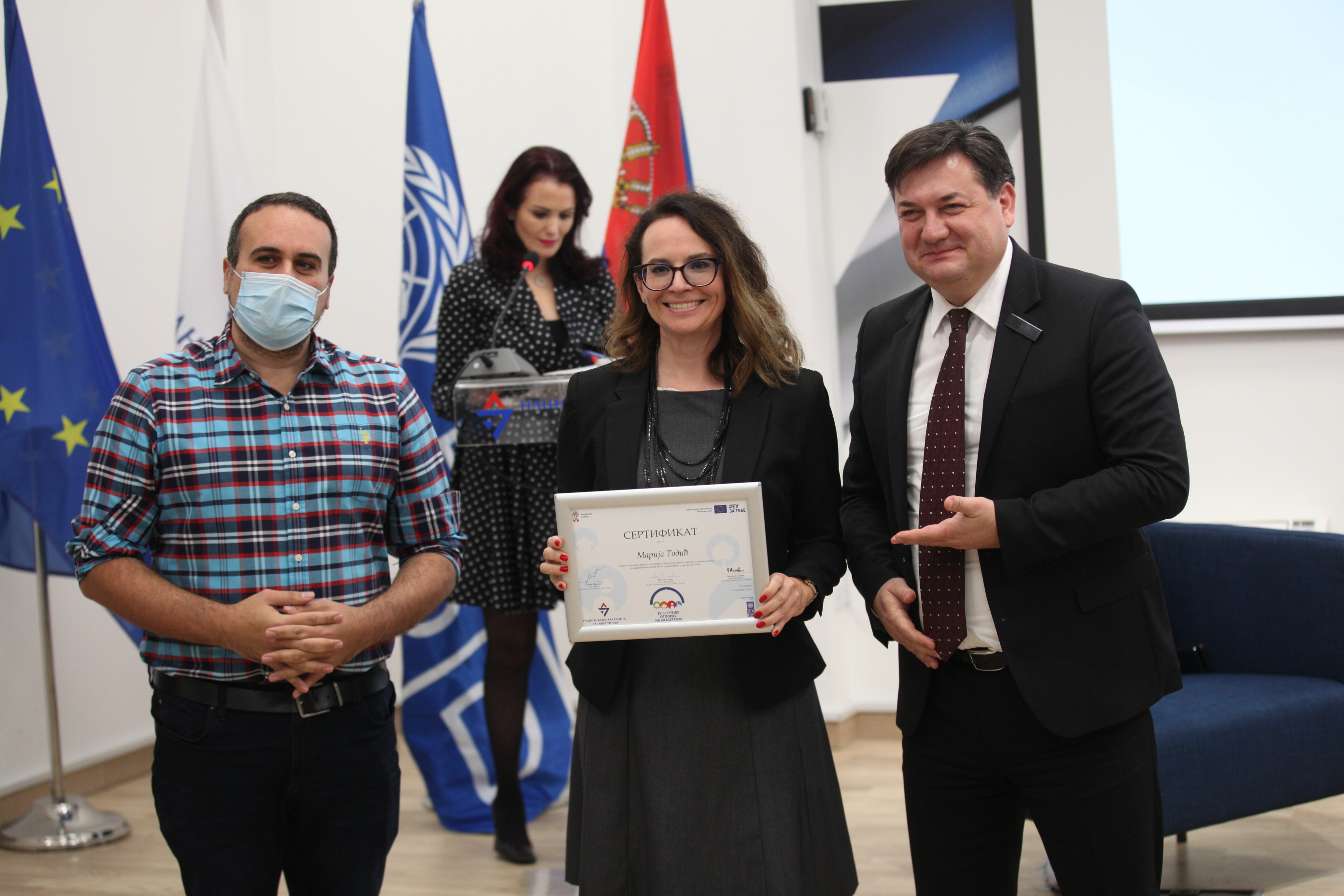November 5th, 2021 - At the ceremony held in the building of the National Academy of Public Administration, a group of 25 trainers in the areas of disaster risk reduction (DRR) and recovery from natural and other disasters received their certificates for successfully completed trainings. The certificates were handed out by Sakellaris Hourdas, Head of Operations III of the EU Delegation to Serbia, and Francine Pickup, Resident Representative of UNDP in Serbia. The trainings were attended by employees of the Public Investment Management Office and the Sector for Emergency Management of the Ministry of Interior, as well as employees from the local self-governments of Kragujevac, Kraljevo, Kruševac, Ub, Obrenovac, Sombor, Zrenjanin, Loznica, Valjevo, Vršac and Vranje.

Sakellaris Hourdas, Head of Operations III of the EU Delegation to Serbia, said the following: “The European Union has funded a range of different activities within this project. Capacity building through specialized training is one of these activities. It’s an investment into the most precious component of the Sector for Emergency Management: its human capital. I’m proud that we have set up the foundation, developed the e-learning modules, and already trained a group of highly qualified trainers that will move on to train hundreds of professionals in local communities in the upcoming months and years.”

“Knowledge and skills of employees in local services for response to emergency situations are crucial for the quality of prevention measures, and for the speed and efficiency of responding to disastrous events such as earthquakes, floods, landslides, or fires. With the support of the European Union and in collaboration with the Ministry of Interior, we are helping the local communities in Serbia to save more lives and accelerate their recovery from disasters,” said Francine Pickup, Resident Representative of UNDP in Serbia.

The ceremony was also attended by Dejan Miletić, Acting Director of the National Academy for Public Administration, Luka Čaušić, Acting Head of the Sector for Emergency Management, and Sandra Nedeljković, Acting Deputy Director of the Public Investment Management Office. “In the past years, Serbia has experienced a string of natural disasters. Dealing with the consequences of such disasters has shown that knowledge and skills of first responders can often make up for the lack of staff, equipment and funds, even in the biggest crises. These situations have also underlined how important it is for all of us, from the national to the local level, to be familiar with the system, interpret the regulations in a uniform way, and have our response strategies prepared. This can be achieved only through continuous professional development, and exchange of knowledge and experience. Investments into prevention and resilience require joint work, good coordination, and commitment of institutions, at the national and local levels. We are deeply grateful to the European Union for enabling us to prepare and implement these training programs, therefore empowering the people who carry out these tasks on a daily basis to increase their knowledge and share it generously,” said Sandra Nedeljković, Public Investment Management Office.
Acting Head of the Sector for Emergency Management, said the following:
“Starting from 2014, the Republic of Serbia is working fast on improving its disaster management system and strengthening the civil protection. Unfortunately, climate change is getting worse each year, so now in a very short period of time we have floods, draughts, earthquakes. Since it was created, the Sector for Emergency Management has worked on boosting the communication between the state authorities and local state-governments. There are three important pillars that support the activities of the Sector and the Ministry of Interior in this regard: equipment, strengthening of communication, and investing in human capacity. This project has included all three pillars, for which I’m deeply grateful to the EU Delegation in Serbia and UNDP. Thanks to this project, we have obtained 27 firefighting vehicles for forest fires, which we have used this summer to put down open-air fires in Serbia and abroad. Additionally, we have established better communication among all participants in this project. Finally, by investing into trainers in the area of civil protection, among whom there are employees of the Sector for Emergency Management, all of us are investing in building our human capital. I’d like to thank the National Academy of Public Administration for its cooperation, as well as the Public Investment Management Office for its commitment to establish a team of trainers who will, in the upcoming period, transfer their knowledge and experience to numerous employees of local self-governments, members of civil protection units, and other important actors who play a role in response to emergency situations.” The 25 certified trainers will transfer their newly acquired knowledge and skills to 900 colleagues all over Serbia. In this way, employees of local self-governments, members of civil protection units, and employees in public institutions and enterprises will be better prepared for a fast and efficient response to emergency situations.

In order to make these trainings available to the largest possible number of local civil servants, UNDP is developing four online courses on DRR and recovery from natural and other disasters, in partnership with the National Academy of Public Administration. These courses will be available by the end of the year.

The training of trainers in the areas of DRR and recovery from natural and other disasters are part of the activities implemented within the project “EU for Serbia Resilient to Disasters” which is funded by the EU and implemented by UNDP. The goal of this project is to contribute to reducing Serbia’s vulnerability to crises and disasters, by supporting institutions and organizations at the national and local levels to boost their prevention measures and improve their emergency response preparedness.